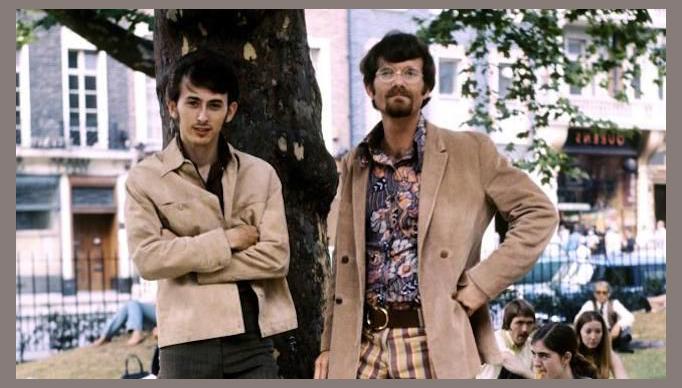 Zager And Evans
Zager And Evans
Zager and Evans: A Symphony of Challenges and Controversies
In the annals of music history, Zager and Evans occupy a unique niche as the creators of the haunting anthem "In the Year 2525." Their journey, however, was marked by both triumph and tribulation.
Formation and Early Success
Zager and Evans was born from the musical kinship of Denny Zager and Rick Evans. Together, they crafted a sound that blended folk, pop, and psychedelic influences, culminating in the release of their debut album, "2525 (Exordium & Terminus)" in 1969.
"In the Year 2525": A Cultural Phenomenon
The album's title track, an eerie and evocative ballad, catapulted the duo to stardom. Its lyrics, which envision a dystopian future where technology dominates and "man becomes obsolete," resonated with audiences worldwide. The song became a global hit, reaching the top of the charts in numerous countries.
Challenges and Controversies
Despite their newfound fame, Zager and Evans faced significant challenges. Allegations of plagiarism and legal battles over the song's authorship cast a shadow over their success. Additionally, the band's unique sound proved difficult to sustain, and they struggled to replicate the magic of "In the Year 2525."
Members and Discography
Zager and Evans consisted of:
* Denny Zager (vocals, guitar)
* Rick Evans (vocals, bass guitar)
* Neal Schon (lead guitar)
* Mel Anderson (drums)
Their discography included:
* "2525 (Exordium & Terminus)" (1969)
* "The Second Time Around" (1970)
* "Zager and Evans" (1971)
* "Come to the Meadow" (1972)
Legacy and Impact
Despite the challenges, Zager and Evans left an enduring mark on the music industry. "In the Year 2525" remains a captivating and thought-provoking anthem, and it continues to inspire artists and audiences alike. The band's story serves as a cautionary tale about the perils and triumphs of artistic pursuit.
In the annals of music history, Zager and Evans occupy a unique niche as the creators of the haunting anthem "In the Year 2525." Their journey, however, was marked by both triumph and tribulation.
Formation and Early Success
Zager and Evans was born from the musical kinship of Denny Zager and Rick Evans. Together, they crafted a sound that blended folk, pop, and psychedelic influences, culminating in the release of their debut album, "2525 (Exordium & Terminus)" in 1969.
"In the Year 2525": A Cultural Phenomenon
The album's title track, an eerie and evocative ballad, catapulted the duo to stardom. Its lyrics, which envision a dystopian future where technology dominates and "man becomes obsolete," resonated with audiences worldwide. The song became a global hit, reaching the top of the charts in numerous countries.
Challenges and Controversies
Despite their newfound fame, Zager and Evans faced significant challenges. Allegations of plagiarism and legal battles over the song's authorship cast a shadow over their success. Additionally, the band's unique sound proved difficult to sustain, and they struggled to replicate the magic of "In the Year 2525."
Members and Discography
Zager and Evans consisted of:
* Denny Zager (vocals, guitar)
* Rick Evans (vocals, bass guitar)
* Neal Schon (lead guitar)
* Mel Anderson (drums)
Their discography included:
* "2525 (Exordium & Terminus)" (1969)
* "The Second Time Around" (1970)
* "Zager and Evans" (1971)
* "Come to the Meadow" (1972)
Legacy and Impact
Despite the challenges, Zager and Evans left an enduring mark on the music industry. "In the Year 2525" remains a captivating and thought-provoking anthem, and it continues to inspire artists and audiences alike. The band's story serves as a cautionary tale about the perils and triumphs of artistic pursuit.